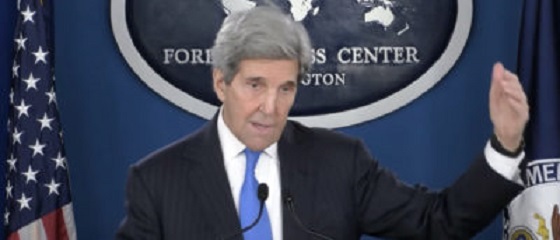Alberta
Alberta parents want balance—not bias—in the classroom

From the Fraser Institute
By Tegan Hill and Paige MacPherson
74 per cent of parents in Alberta believe teachers should present both sides of controversial issues (e.g. sexuality/gender, climate change) or avoid them entirely.
With the Alberta government set to test its new draft social studies curriculum in September, a new poll reveals a clear consensus: Alberta parents of K-12 children want schools to provide balance—not bias—in the classroom. And when it comes to controversial material in schools, they want to make their own choices for their children.
Specifically, the poll (conducted by Leger and commissioned by the Fraser Institute) found that 88 per cent of Alberta parents (with kids in public and independent schools) believe teachers and the provincial curriculum should focus on facts—not teacher interpretations of those facts, which may include opinions. Only 10 per cent of Alberta parents disagreed.
Moreover, despite ongoing debates in the media and among activists about K-12 school policies, curriculum development, controversial issues in the classroom and parental involvement, according to the poll, the vast majority of parents agree on how schools should handle these issues.
For example, 74 per cent of parents in Alberta believe teachers should present both sides of controversial issues (e.g. sexuality/gender, climate change) or avoid them entirely.
An overwhelming majority of Alberta parents (86 per cent) believe schools should provide advance notice when controversial topics will be discussed in class or during formal school activities. This isn’t surprising—many parents may want to discuss these issues with their children in advance.
In fact, when controversial topics arise, about three quarters (73 per cent) of Alberta parents believe parents should have the right to remove their children from those lessons without consequence to their children’s grades. Of the minority who do not believe parents should have this right, most said “children need to learn about all topics/viewpoints, regardless of their parents’ bias.”
And almost nine in 10 Alberta parents (89 per cent) believe classroom materials and conversations about potentially controversial topics should always be age appropriate.
These polling results should help inform provincial and school-level policies around parental information, consent, school curricula and teacher curriculum guides. For instance, given that parents overwhelmingly favour facts in classrooms, curriculum guides should require the teaching of specific details (e.g. the key players, dates and context of specific historical events). Currently, teachers are allowed to interpret events based on their opinions, which means students may hear completely different interpretations depending on the particular teacher.
While the preferences of parents with kids in K-12 schools are often presented as contentious in media and politics, polling data shows a clear consensus. Parents overwhelmingly value balance, not bias. They want their kids taught age-appropriate facts rather than opinions. And they expect prior notice before anything controversial happens in their kids’ schools. According to most parents in Alberta, none of these opinions are controversial.
Authors:
Alberta
Alberta can’t fix its deficits with oil money: Lennie Kaplan

This article supplied by Troy Media.
Alberta is banking on oil to erase rising deficits, but the province’s budget can’t hold without major fiscal changes
Alberta is heading for a fiscal cliff, and no amount of oil revenue will save it this time.
The province is facing ballooning deficits, rising debt and an addiction to resource revenues that rise and fall with global markets. As Budget 2026 consultations begin, the government is gambling on oil prices to balance the books again. That gamble is failing. Alberta is already staring down multibillion-dollar shortfalls.
I estimate the province will run deficits of $7.7 billion in 2025-26, $8.8 billion in 2026-27 and $7.5 billion in 2027-28. If nothing changes, debt will climb from $85.2 billion to $112.3 billion in just three years. That is an increase of more than $27 billion, and it is entirely avoidable.
These numbers come from my latest fiscal analysis, completed at the end of October. I used conservative assumptions: oil prices at US$62 to US$67 per barrel over the next three years. Expenses are expected to keep growing faster than inflation and population. I also requested Alberta’s five-year internal fiscal projections through access to information but Treasury Board and Finance refused to release them. Those forecasts exist, but Albertans have not been allowed to see them.
Alberta has been running structural deficits for years, even during boom times. That is because it spends more than it brings in, counting on oil royalties to fill the gap. No other province leans this hard on non-renewable resource revenue. It is volatile. It is risky. And it is getting worse.
That is what makes Premier Danielle Smith’s recent Financial Post column so striking. She effectively admitted that any path to a balanced budget depends on doubling Alberta’s oil production by 2035. That is not a plan. It is a fantasy. It relies on global markets, pipeline expansions and long-term forecasts that rarely hold. It puts taxpayers on the hook for a commodity cycle the province does not control.
I have long supported Alberta’s oil and gas industry. But I will call out any government that leans on inflated projections to justify bad fiscal choices.
Just three years ago, Alberta needed oil at US$70 to balance the budget. Now it needs US$74 in 2025-26, US$76.35 in 2026-27 and US$77.50 in 2027-28. That bar keeps rising. A single US$1 drop in the oil price will soon cost Alberta $750 million a year. By the end of the decade, that figure could reach $1 billion. That is not a cushion. It is a cliff edge.
Even if the government had pulled in $13 billion per year in oil revenue over the last four years, it still would have run deficits. The real problem is spending. Since 2021, operating spending, excluding COVID-19 relief, has jumped by $15.5 billion, or 31 per cent. That is nearly eight per cent per year. For comparison, during the last four years under premiers Ed Stelmach and Alison Redford, spending went up 6.9 per cent annually.
This is not a revenue problem. It is a spending problem, papered over with oil booms. Pretending Alberta can keep expanding health care, education and social services on the back of unpredictable oil money is reckless. Do we really want our schools and hospitals held hostage to oil prices and OPEC?
The solution was laid out decades ago. Oil royalties should be saved off the top, not dumped into general revenue. That is what Premier Peter Lougheed understood when he created the Alberta Heritage Savings Trust Fund in 1976. It is what Premier Ralph Klein did when he cut spending and paid down debt in the 1990s. Alberta used to treat oil as a bonus. Now it treats it as a crutch.
With debt climbing and deficits baked in, Alberta is out of time. I have previously laid out detailed solutions. But here is where the government should start.
First, transparency. Albertans deserve a full three-year fiscal update by the end of November. That includes real numbers on revenue, expenses, debt and deficits. The government must also reinstate the legal requirement for a mid-year economic and fiscal report. No more hiding the ball.
Second, a real plan. Not projections based on hope, but a balanced three-year budget that can survive oil prices dropping below forecast. That plan should be part of Budget 2026 consultations.
Third, long-term discipline. Alberta needs a fiscal sustainability framework, backed by a public long-term report released before year-end.
Because if this government will not take responsibility, the next oil shock will.
Lennie Kaplan is a former senior manager in the fiscal and economic policy division of Alberta’s Ministry of Treasury Board and Finance, where, among other duties, he examined best practices in fiscal frameworks, program reviews and savings strategies for non-renewable resource revenues. In 2012, he won a Corporate Values Award in TB&F for his work on Alberta’s fiscal framework review. In 2019, Mr. Kaplan served as executive director to the MacKinnon Panel on Alberta’s finances—a government-appointed panel tasked with reviewing Alberta’s spending and recommending reforms.
Alberta
IEA peak-oil reversal gives Alberta long-term leverage

This article supplied by Troy Media.
The peak-oil narrative has collapsed, and the IEA’s U-turn marks a major strategic win for Alberta
After years of confidently predicting that global oil demand was on the verge of collapsing, the International Energy Agency (IEA) has now reversed course—a stunning retreat that shatters the peak-oil narrative and rewrites the outlook for oil-producing regions such as Alberta.
For years, analysts warned that an oil glut was coming. Suddenly, the tide has turned. The Paris-based IEA, the world’s most influential energy forecasting body, is stepping back from its long-held view that peak oil demand is just around the corner.
The IEA reversal is a strategic boost for Alberta and a political complication for Ottawa, which now has to reconcile its climate commitments with a global outlook that no longer supports a rapid decline in fossil fuel use or the doomsday narrative Ottawa has relied on to advance its climate agenda.
Alberta’s economy remains tied to long-term global demand for reliable, conventional energy. The province produces roughly 80 per cent of Canada’s oil and depends on resource revenues to fund a significant share of its provincial budget. The sector also plays a central role in the national economy, supporting hundreds of thousands of jobs and contributing close to 10 per cent of Canada’s GDP when related industries are included.
That reality stands in sharp contrast to Ottawa. Prime Minister Mark Carney has long championed net-zero timelines, ESG frameworks and tighter climate policy, and has repeatedly signalled that expanding long-term oil production is not part of his economic vision. The new IEA outlook bolsters Alberta’s position far more than it aligns with his government’s preferred direction.
Globally, the shift is even clearer. The IEA’s latest World Energy Outlook, released on Nov. 12, makes the reversal unmistakable. Under existing policies and regulations, global demand for oil and natural gas will continue to rise well past this decade and could keep climbing until 2050. Demand reaches 105 million barrels per day in 2035 and 113 million barrels per day in 2050, up from 100 million barrels per day last year, a direct contradiction of years of claims that the world was on the cusp of phasing out fossil fuels.
A key factor is the slowing pace of electric vehicle adoption, driven by weakening policy support outside China and Europe. The IEA now expects the share of electric vehicles in global car sales to plateau after 2035. In many countries, subsidies are being reduced, purchase incentives are ending and charging-infrastructure goals are slipping. Without coercive policy intervention, electric vehicle adoption will not accelerate fast enough to meaningfully cut oil demand.
The IEA’s own outlook now shows it wasn’t merely off in its forecasts; it repeatedly projected that oil demand was in rapid decline, despite evidence to the contrary. Just last year, IEA executive director Fatih Birol told the Financial Times that we were witnessing “the beginning of the end of the fossil fuel era.” The new outlook directly contradicts that claim.
The political landscape also matters. U.S. President Donald Trump’s return to the White House shifted global expectations. The United States withdrew from the Paris Agreement, reversed Biden-era climate measures and embraced an expansion of domestic oil and gas production. As the world’s largest economy and the IEA’s largest contributor, the U.S. carries significant weight, and other countries, including Canada and the United Kingdom, have taken steps to shore up energy security by keeping existing fossil-fuel capacity online while navigating their longer-term transition plans.
The IEA also warns that the world is likely to miss its goal of limiting temperature increases to 1.5 °C over pre-industrial levels. During the Biden years, the IAE maintained that reaching net-zero by mid-century required ending investment in new oil, gas and coal projects. That stance has now faded. Its updated position concedes that demand will not fall quickly enough to meet those targets.
Investment banks are also adjusting. A Bloomberg report citing Goldman Sachs analysts projects global oil demand could rise to 113 million barrels per day by 2040, compared with 103.5 million barrels per day in 2024, Irina Slav wrote for Oilprice.com. Goldman cites slow progress on net-zero policies, infrastructure challenges for wind and solar and weaker electric vehicle adoption.
“We do not assume major breakthroughs in low-carbon technology,” Sachs’ analysts wrote. “Even for peaking road oil demand, we expect a long plateau after 2030.” That implies a stable, not shrinking, market for oil.
OPEC, long insisting that peak demand is nowhere in sight, feels vindicated. “We hope … we have passed the peak in the misguided notion of ‘peak oil’,” the organization said last Wednesday after the outlook’s release.
Oil is set to remain at the centre of global energy demand for years to come, and for Alberta, Canada’s energy capital, the IEA’s course correction offers renewed certainty in a world that had been prematurely writing off its future.
Toronto-based Rashid Husain Syed is a highly regarded analyst specializing in energy and politics, particularly in the Middle East. In addition to his contributions to local and international newspapers, Rashid frequently lends his expertise as a speaker at global conferences. Organizations such as the Department of Energy in Washington and the International Energy Agency in Paris have sought his insights on global energy matters.
Troy Media empowers Canadian community news outlets by providing independent, insightful analysis and commentary. Our mission is to support local media in helping Canadians stay informed and engaged by delivering reliable content that strengthens community connections and deepens understanding across the country.
-

 Alberta2 days ago
Alberta2 days agoFrom Underdog to Top Broodmare
-

 Business2 days ago
Business2 days agoMan overboard as HMCS Carney lists to the right
-

 Daily Caller1 day ago
Daily Caller1 day ago‘No Critical Thinking’: Parents Sound Alarm As Tech Begins To ‘Replace The Teacher’
-

 Alberta2 days ago
Alberta2 days agoFalling resource revenue fuels Alberta government’s red ink
-

 Business2 days ago
Business2 days agoHigher carbon taxes in pipeline MOU are a bad deal for taxpayers
-

 Alberta2 days ago
Alberta2 days agoREAD IT HERE – Canada-Alberta Memorandum of Understanding – From the Prime Minister’s Office
-

 Daily Caller14 hours ago
Daily Caller14 hours agoJohn Kerry Lurches Back Onto Global Stage For One Final Gasp
-

 Alberta1 day ago
Alberta1 day agoAlberta can’t fix its deficits with oil money: Lennie Kaplan






